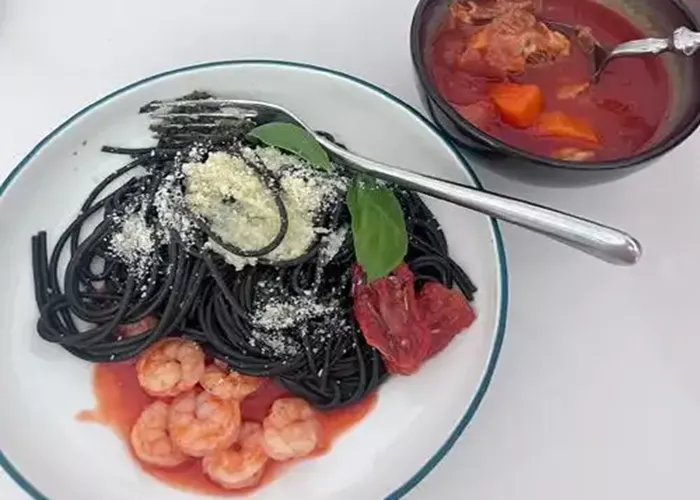In the realm of weight loss, diet plays a crucial role. Many individuals seeking to shed pounds often wonder if frozen foods can fit into their weight loss plan. The short answer is yes, frozen foods can indeed be part of a healthy weight loss diet. This article delves into the intricacies of frozen foods during weight loss, exploring their nutritional value, benefits, potential drawbacks, and practical tips for incorporating them into your meal plan.
Introduction to Frozen Foods
Frozen foods have evolved significantly from being mere convenience items to becoming sophisticated, nutritious options suitable for various dietary needs, including weight loss. Modern freezing techniques preserve the nutritional integrity of foods, making them a viable alternative to fresh produce, especially in regions where fresh options are scarce or expensive.
Nutritional Value of Frozen Foods
The nutritional value of frozen foods is often comparable to, or even superior to, fresh foods. This is because freezing halts the decomposition process that starts as soon as food is harvested. Nutrients like vitamins and minerals are locked in, preventing significant loss over time.
Vitamin and Mineral Preservation
Freezing preserves vitamins and minerals better than some preservation methods, such as canning. For example, studies have shown that frozen spinach retains more vitamin C than fresh spinach stored at room temperature or even refrigerated. Similarly, frozen fruits like strawberries and blueberries maintain their antioxidant content, which is crucial for weight loss and overall health.
Fiber Content
Fiber is essential for weight loss as it aids in digestion, keeps you feeling full longer, and helps regulate blood sugar levels. Frozen vegetables and fruits retain their fiber content, making them an excellent choice for a fiber-rich diet.
Benefits of Frozen Foods for Weight Loss
Convenience and Portability
One of the primary benefits of frozen foods is their convenience. They are easy to store, require no preparation, and can be quickly thawed or cooked. This is particularly advantageous for busy individuals who may struggle to find time to prepare fresh meals daily.
Cost-Effectiveness
Frozen foods are often more cost-effective than fresh options. Buying in bulk and freezing portions can help manage food expenses, making it easier to stick to a budget without compromising nutritional intake.
Long Shelf Life
The extended shelf life of frozen foods reduces food waste. You can buy in bulk, portion out meals, and freeze them for later use, ensuring that nothing goes to waste.
Types of Frozen Foods Suitable for Weight Loss
Frozen Vegetables
Frozen vegetables are a nutritious and versatile option. They can be used in soups, stir-fries, casseroles, and even smoothies. Examples include:
- Spinach: High in iron, calcium, and vitamins A and C.
- Broccoli: Rich in fiber, vitamins C and K, and folic acid.
- Peas: A good source of protein, fiber, and vitamins A, C, and B vitamins.
Frozen Fruits
Frozen fruits can be enjoyed on their own as a healthy snack or added to smoothies, yogurt, and oatmeal. Popular choices include:
- Strawberries: Packed with vitamins C and K, fiber, and antioxidants.
- Blueberries: High in antioxidants, vitamins C and K, and fiber.
- Mangoes: Rich in vitamins A, C, and E, as well as fiber and potassium.
Frozen Proteins
Frozen proteins like chicken, fish, and lean meats are excellent sources of high-quality protein, essential for muscle repair and growth during weight loss. They can be grilled, baked, or added to salads and stir-fries.
- Chicken Breasts: Low in fat and high in protein.
- Salmon Fillets: Rich in omega-3 fatty acids, which support heart health and reduce inflammation.
- Turkey Burgers: Lean and high in protein, making them a healthier alternative to beef burgers.
Potential Drawbacks of Frozen Foods
While frozen foods offer numerous benefits, there are some potential drawbacks to consider:
Sodium Content
Some frozen foods, particularly pre-prepared meals and convenience items, may be high in sodium. Excessive sodium intake can lead to high blood pressure and other health issues. It’s essential to read labels carefully and choose low-sodium options.
Added Sugars and Preservatives
Some frozen foods may contain added sugars and preservatives to enhance flavor and extend shelf life. These ingredients can be detrimental to weight loss efforts. Always check the ingredient list to ensure you’re getting a clean, nutritious product.
Practical Tips for Incorporating Frozen Foods into Your Weight Loss Plan
Plan Your Meals: Create a weekly meal plan that incorporates frozen foods. This will help you stay organized and ensure you have a variety of nutritious options on hand.
Read Labels: Always read the nutrition labels on frozen foods to understand their nutritional content, including calorie count, sodium levels, and ingredient list.
Portion Control: Use portion control to avoid overeating. Measure out serving sizes and freeze individual portions to make it easier to track your intake.
Mix and Match: Combine frozen vegetables, fruits, and proteins to create balanced meals. For example, you can mix frozen broccoli and bell peppers with grilled chicken for a nutritious stir-fry.
Experiment with Recipes: Don’t be afraid to experiment with new recipes that incorporate frozen foods. This will keep your meals exciting and prevent monotony, which can be a barrier to sustained weight loss.
Conclusion
Frozen foods can be a valuable addition to a weight loss plan, offering convenience, cost-effectiveness, and nutritional value. By choosing nutrient-dense options, reading labels carefully, and incorporating them into balanced meals, you can enjoy the benefits of frozen foods without compromising your weight loss goals.
Remember, the key to successful weight loss is a combination of diet and exercise. While frozen foods can support your dietary efforts, regular physical activity is also essential for burning calories, building muscle, and improving overall health.
Related topic:


